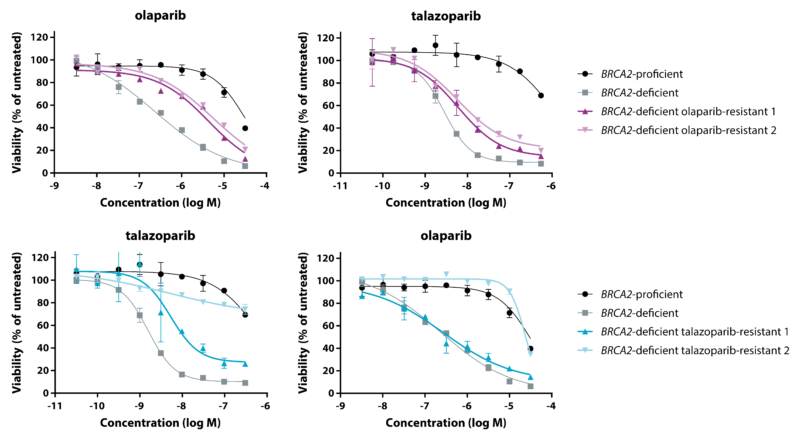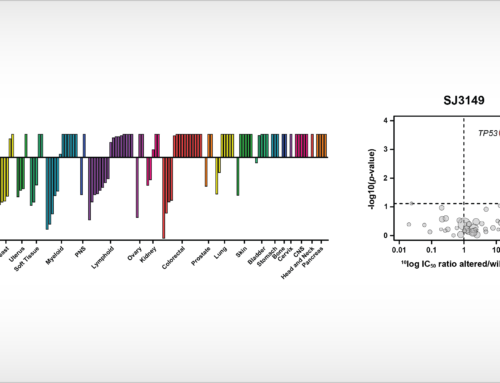Drug resistance is a major problem in the treatment of cancer. Many aspects of clinical drug resistance can be studied in drug-resistant cell lines generated in vitro. At Oncolines, there are more than 70 human cancer cell lines selected for resistance against various targeted therapies. These cell lines can be applied in proliferation assays, drug combination studies and mechanism-of-action studies. At the AACR Annual Meeting next week in San Diego, we will present new data on PARP inhibitor-resistant cell lines.
PARP inhibitor-resistant cell lines have been generated by long-term exposure of BRCA2-deficient colon cancer cells to either olaparib or talazoparib. Cell viability assays were performed to confirm resistance (see figure) and showed cross-resistance of the cell lines against other PARP inhibitors.
If you are interested to study the effects of your compound in our drug-resistant cell lines, please visit the Oncolines team at Booth #449 in the Exhibition Hall of the San Diego Convention Center or contact us at services@oncolines.com.
On Wednesday morning, April 10th from 9:00 to 12:30 (PST), we will present a poster describing profiling studies of various DNA damage response pathway-targeting agents, including data on the PARP inhibitor-resistant cell lines. The poster (abstract #7126) can be found in section 22, at poster board 21.
Oncolines B.V. is a precision medicine services company in oncology and cancer immunotherapy. Oncolines is part of the Symeres group of companies, a group of high-quality CROs and CDMOs based in Europe and the United States.






